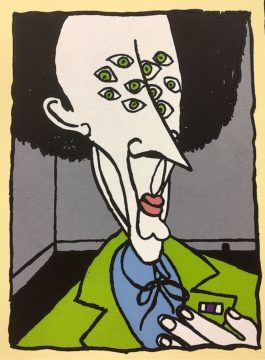Zack Savitsky in Science:
 When American novelist Kurt Vonnegut addressed the Bennington College class of 1970—1 year after publishing his best-selling novel, Slaughterhouse-Five—he hit the crowd with his signature one-two punch. “I fully expected that by the time I was 21, some scientist … would have taken a color photograph of God Almighty and sold it to Popular Mechanics magazine,” he said. “What actually happened … was that we dropped scientific truth on Hiroshima.” This weary skepticism for the scientific endeavor rings through many of Vonnegut’s 14 novels and dozens of short stories. For what would have been the famed author’s 100th birthday, Science talked to literary scholars, philosophers of science, and political theorists about the messages Vonnegut left for the scientific community—and why he’s more relevant than ever.
When American novelist Kurt Vonnegut addressed the Bennington College class of 1970—1 year after publishing his best-selling novel, Slaughterhouse-Five—he hit the crowd with his signature one-two punch. “I fully expected that by the time I was 21, some scientist … would have taken a color photograph of God Almighty and sold it to Popular Mechanics magazine,” he said. “What actually happened … was that we dropped scientific truth on Hiroshima.” This weary skepticism for the scientific endeavor rings through many of Vonnegut’s 14 novels and dozens of short stories. For what would have been the famed author’s 100th birthday, Science talked to literary scholars, philosophers of science, and political theorists about the messages Vonnegut left for the scientific community—and why he’s more relevant than ever.
More here.
